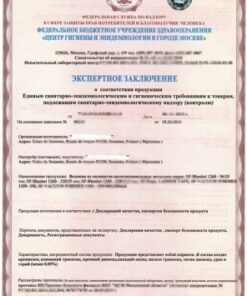Sale!
Explosion Protection Certificate of the Customs Union
Original price was: ₹40,000.00.₹20,000.00Current price is: ₹20,000.00.
An Explosion Protection Certificate of the Customs Union (EAC Ex Certificate) is a mandatory document required for equipment intended for use in hazardous environments within the Eurasian Customs Union. The Eurasian Customs Union consists of Russia, Belarus, Kazakhstan, Armenia, and Kyrgyzstan.
Here are some key points about the Explosion Protection Certificate:
1. **Purpose**: The certificate confirms that the equipment meets the safety requirements and standards set by the Customs Union for use in potentially explosive atmospheres.
2. **Types of Protection**: The certificate covers various types of protection against explosions, such as:
– Ex d – Flameproof enclosure
– Ex e – Increased safety
– Ex i – Intrinsic safety
– Ex n – Non-sparking
– Ex p – Pressurized enclosure
– Ex q – Powder filling
– Ex o – Oil immersion
– Ex m – Encapsulation
– Ex t – Dust protection
3. **Application Process**:
– The manufacturer or supplier must apply for the certificate through an accredited certification body within the Customs Union.
– The equipment must undergo testing and evaluation to ensure compliance with the technical regulations of the Customs Union.
– After successful testing and evaluation, the certification body issues the Explosion Protection Certificate.
4. **Validity**: The certificate is usually valid for a specific period, after which it needs to be renewed by retesting the equipment or providing evidence of its continued compliance.
5. **Marking**: Equipment that has received the Explosion Protection Certificate should bear the appropriate EAC Ex marking, indicating the type of protection and compliance with the Customs Union standards.
6. **Importance**: Having a valid Explosion Protection Certificate is crucial for importing and selling equipment in the Customs Union countries. Without this certificate, the equipment may be denied entry or face legal consequences.
It’s important to note that the specific requirements and procedures for obtaining an Explosion Protection Certificate may vary depending on the type of equipment and the Customs Union regulations in force at the time of application.
If you are a manufacturer or supplier planning to export explosion-proof equipment to the Customs Union countries, it’s advisable to consult with a local expert or legal advisor familiar with the regulations to ensure compliance and facilitate the certification process.












Reviews
There are no reviews yet.